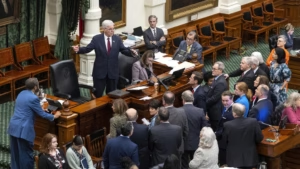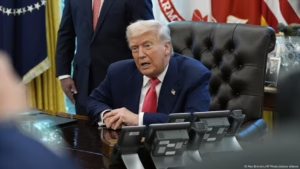When a driver refuels their vehicle with 10 liters of fuel, they are contributing approximately $5 in tax to the national government. This is standard unless they drive an electric vehicle (EV), in which case the government loses this tax revenue since no gasoline or diesel is being purchased.
Over recent years, the Productivity Commission has pushed for reforms regarding how revenue is raised from vehicles. The Albanese government is being vocal about the possibility of instituting a road user charge for EV owners. Following a government economic reform discussion this week, Treasury Secretary Jim Chalmers indicated a lot of conceptual support for road user charging, but details, such as the type of charge and which vehicles would be affected, remain to be ironed out.
The proposed road user charge impacts not just electric vehicles but also helps decide how revenue will be raised from vehicles in general. State treasurers plan to discuss this as a concept at their upcoming meeting. As the number of battery electric vehicles and plug-in hybrids rise, reaching about 298,000 and 81,000 respectively, they still represent less than 2% of the 21.7 million vehicles currently on the road in Australia.
The effectiveness and timing of introducing such a charge are under debate. Some worry that implementing a charge too early could hinder the take up of electricity-powered cars. Others suggest governments could pursue a flat fee for EV users or a fee based on vehicle mileage, also potentially taking into account the weight of the vehicle.
The revenue from fuel excise in Australia mostly does not go towards spending on road infrastructure, contrary to a common belief. Only a small portion of the collected tax goes into a special account for states and territories to spend on road infrastructure.
Should a future dominated by electric vehicles come to pass, a significant decrease in the fuel excise revenue is expected. The charge of excise by the government is seen more as a feasible figure rather than being based on the actual cost of using the roads.
The Electric Vehicle Council’s head of legal, policy, and advocacy, Aman Gaur, suggests that a road user charge is inevitable but should be applied equitably to all vehicles, not just EVs. The council is in support of a charge for all types of vehicles and advocates for EV drivers to be exempt from such a charge until electric vehicles constitute 30% of new vehicle sales.
The NSW government has floated its own proposal for a road user charge which, if no national scheme is established, could be introduced in mid-2027. The proposed fee of 2.97 cents per kilometer for an EV and 2.37 cents for a plug-in hybrid may influence the affordability of such vehicles for the average consumer.
Proponents of a general road user charge also see it as a means for governments to offer discounts, incorporate congestion charges, and potentially direct revenue towards transport infrastructure and building recharging stations. A well-designed road user charge could positively impact congestion, emissions, infrastructure costs, and the overall efficiency of the transport network.
Source: https://www.theguardian.com/environment/2025/aug/23/ev-road-user-charge-australia-electric-cars-vehicles-clean-transition








